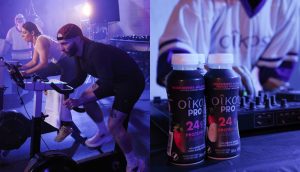Seems Odeon Films’ viral strategy to skirt a heavy TV buy touting Silent Hill (a horror film adaptation of the video game) worked; according to Nielsen EDI, the film topped the box office charts, grossing more than $20 million this past opening weekend in North America. In lieu of traditional TV trailers, the prodco went after the online audience. As part of Silent Hill‘s promotion, the Toronto-based company periodically released online photos of the movie’s monstrous creatures to demonstrate its authenticity and respect for the popular game and, according to Odeon president Bryan Gliserman, fans have ‘analyzed those photos like it was intelligence on a foreign army.’
Ads were also placed on gaming and social networking websites in addition to advergaming. Plus, the company distributed a mock newspaper depicting the events occurring in the town of Silent Hill in cinemas across Canada. Odeon also bought TV ad time for mock newscasts – both describing the sinister, titular town and the disappearance of the characters.
Creative for the film was developed by Sony TriStar out of the U.S., with Canadian media buys by OMD.























